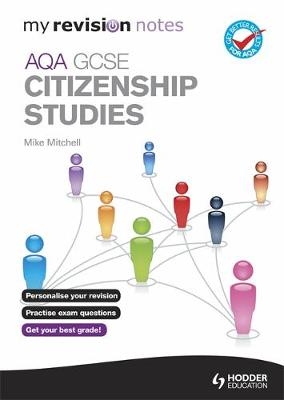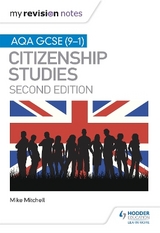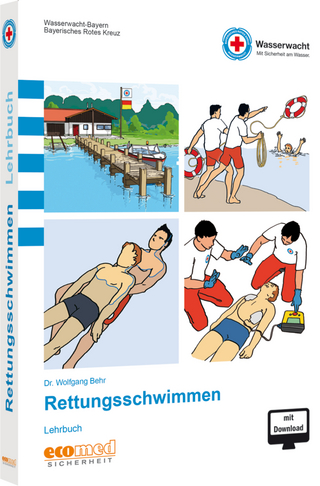
My Revision Notes: AQA GCSE Citizenship Studies
Hodder Education (Verlag)
978-1-4441-5478-8 (ISBN)
- Titel ist leider vergriffen;
keine Neuauflage - Artikel merken
Mike Mitchell is an experienced examiner.
Theme 1 Community Action and Active Citizenship 1.1 What factors make for effective 'active citizenship'? The tactics of pressure group campaigns Target groups Case studies: campaigns to secure rights Recent UK-based case studies of campaigning Factors in successful campaigning Pressure groups and the media holding representatives to account Pressure group impact upon public debate 1.2 Who can make a difference? Community involvement Political power within the UK The influence of the media in influencing or reflecting public opinion Trade unions The impact of collective action The impact of government on the lives of citizens The issue of non-participation within communities 1.3 How and why are Citizenship issues relevant in the workplace? Rights and responsibilities in the workplace The economy and community cohesion Case studies: sustainable practices Theme 2 Being a Citizen in the UK: Democracy and Identity 2.1 What are the roles of Parliament and Government? What is Parliament? Its composition and main roles How laws are made by Parliament What are the roles of political parties, government and opposition, and the Cabinet? Recent changes to the operation of democracy in the UK How are citizens' lives affected by the way in which governments and politicians exercise power at a national level? UK democracy compared with other forms of government, including one European, or wider world, and one non-democratic system 2.2 How can citizens participate in democratic processes, particularly elections and voting? How fair and effective are existing voting systems in the UK? Should voting be made compulsory? Should the voting age be lowered to sixteen? How can citizens participate in democracy other than by voting in elections? Why should we be concerned about citizens' lack of involvement in the political process? How are the government and political parties attempting to deal with voter apathy and how effective have they been? 2.3 The origins and implications of diversity in the United Kingdom What is understood by the term 'Britishness'? What are the constituent parts of the United Kingdom? Definitions of prejudice, discrimination, stereotypes and labelling Why is tolerance important? What is the nature of British identity? Multiple identities in a diverse society What are the opportunities and barriers to citizen participation? 2.4 Ethnicity, identity, community life and promoting cohesion How can migration shape communities? Contemporary issues relating to multiculturalism and community cohesion What are shared common perspectives or shared values? Government actions to reduce discrimination and disadvantage The impact of migration The concept of equality in a changing society Cohesive communities Celebrating cultural diversity Theme 3 Fairness and Justice 3.1 What are my rights and responsibilities as a British citizen within a broader framework of human rights? Citizens' rights and responsibilities in the UK Key human rights legislation Case studies: human rights abuse Getting the balance right on human rights The balance between rights and responsibilities 3.2 How are citizens' lives affected by the law? The differences between civil and criminal law Legal rights in society How the civil law can have an impact on young people Effectiveness of equal opportunities legislation Case studies: equal opportunities legislation 3.3 How effective is the criminal justice system? The purposes of criminal law and its role in society and the community The law and young offenders Key people and structures in the legal system The purposes and practice of sentencing The effectiveness of the criminal justice system 3.4 Why does the media matter and how influential is it? What is a 'free press' and why is it important? What are the responsibilities of the media? Types of media Media distortion Politicians and the media Case studies: how groups use the media to influence others Theme 4 Global Issues and Making a Difference 4.1 How effective are the key international bodies in dealing with important international and global issues? The roles of key international bodies Case studies: international conflict Case studies: human rights abuse 4.2 What are the challenges faced by the global community regarding inequality, and how might they be dealt with? The positive and negative aspects of globalisation The world economic system Fair trade, ethical trading, globalisation and aid programmes Contemporary global economic agendas Case studies: campaigns for global economic issues 4.3 What are the challenges of global interdependence and how might they be tackled? Case studies: sustainable development Case studies: global interdependence 4.4 Why should British citizens care about, or be involved in, world affairs? The role of the UK within international organisations Case studies: UK involvement with an international body 4.5 How are international issues influenced? The citizen's voice in the global village Pressure groups and NGOs involved in international campaigning How can individuals effect change in regard to an international issue? How do different groups influence international issues? How can information from pressure groups, voluntary groups and NGOs be used in public debate and policy formation? Answers to test yourself questions
| Erscheint lt. Verlag | 30.3.2012 |
|---|---|
| Verlagsort | London |
| Sprache | englisch |
| Themenwelt | Schulbuch / Wörterbuch |
| ISBN-10 | 1-4441-5478-8 / 1444154788 |
| ISBN-13 | 978-1-4441-5478-8 / 9781444154788 |
| Zustand | Neuware |
| Informationen gemäß Produktsicherheitsverordnung (GPSR) | |
| Haben Sie eine Frage zum Produkt? |
aus dem Bereich



